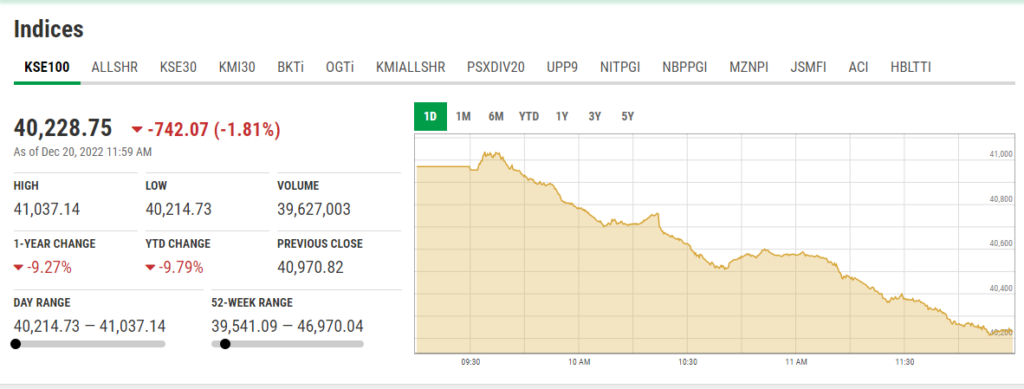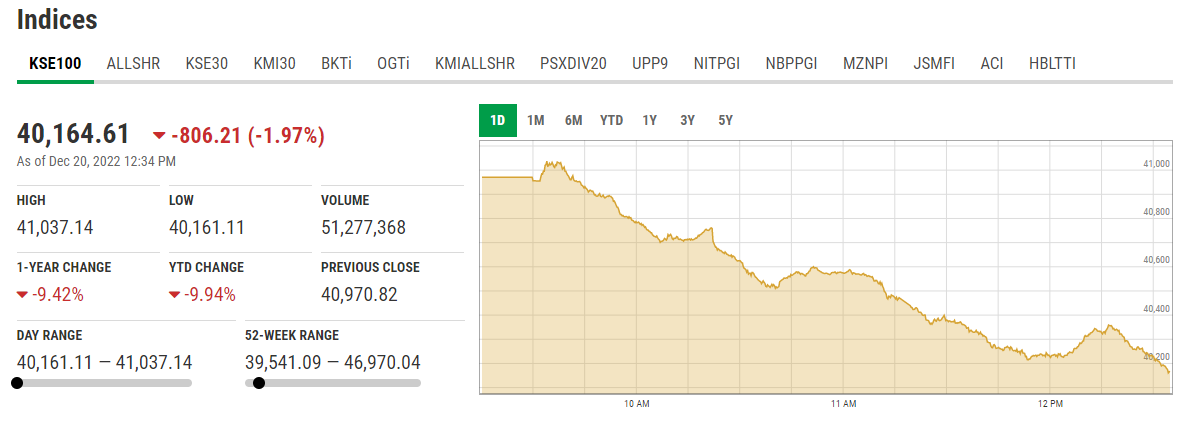Business
PSX nosedives by over 800 points amid political uncertainty
-

 Latest News3 days ago
Latest News3 days agoThe Supreme Court rejects SIC’s request to be recognized as a parliamentary party.
-

 Uncategorized3 days ago
Uncategorized3 days agoPakistan will begin a full-scale military campaign in Balochistan to combat terrorism.
-

 Latest News3 days ago
Latest News3 days agoPakistan and Saudi Arabia have reached an agreement to implement a prisoner exchange arrangement.
-

 Latest News3 days ago
Latest News3 days agoTwelve security personnel were killed in the attack on the Bannu checkpoint.
-

 Latest News3 days ago
Latest News3 days agoPTI representatives conjecture in the media over Imran’s approval of bail: FIA investigator
-

 Entertainment3 days ago
Entertainment3 days agoAryan Khan’s Netflix debut web series is announced by Shah Rukh Khan.
-

 Business3 days ago
Business3 days agoThe Pakistan Stock Exchange hits a record high as it approaches 97,000 points.
-

 Latest News3 days ago
Latest News3 days agoSix militants were killed and twelve Army personnel were slain in the Khawarij attack on the Bannu checkpost.




























